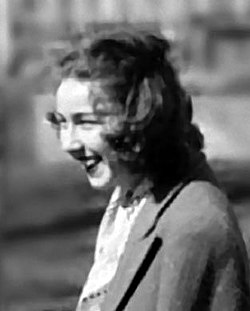Flannery O'Connor Quote
The thing for you to do is write something with a delayed reaction like those capsules that take an hour to melt in your stomach. In this way, it could be performed on Monday and not make them vomit until Wednesday, by which time they would not be sure who was to blame. This is the principle I operate under and I find it works very well.
Flannery O'Connor
The thing for you to do is write something with a delayed reaction like those capsules that take an hour to melt in your stomach. In this way, it could be performed on Monday and not make them vomit until Wednesday, by which time they would not be sure who was to blame. This is the principle I operate under and I find it works very well.
Related Quotes
About Flannery O'Connor
Mary Flannery O'Connor (March 25, 1925 – August 3, 1964) was an American novelist, short story writer, and essayist. She wrote two novels and 31 short stories, as well as a number of reviews and commentaries.
O'Connor was a Southern writer who often wrote in a sardonic Southern Gothic style. She relied heavily on regional settings and grotesque characters, often in violent situations. In her writing, an unsentimental acceptance or rejection of the limitations, imperfections or differences of these characters (whether attributed to disability, race, crime, religion or sanity) typically underpins the drama.
O'Connor's writing often reflects her Catholic faith, and frequently examines questions of morality and ethics. Her posthumously compiled Complete Stories won the 1972 U.S. National Book Award for Fiction and has been the subject of enduring praise.
O'Connor was a Southern writer who often wrote in a sardonic Southern Gothic style. She relied heavily on regional settings and grotesque characters, often in violent situations. In her writing, an unsentimental acceptance or rejection of the limitations, imperfections or differences of these characters (whether attributed to disability, race, crime, religion or sanity) typically underpins the drama.
O'Connor's writing often reflects her Catholic faith, and frequently examines questions of morality and ethics. Her posthumously compiled Complete Stories won the 1972 U.S. National Book Award for Fiction and has been the subject of enduring praise.
